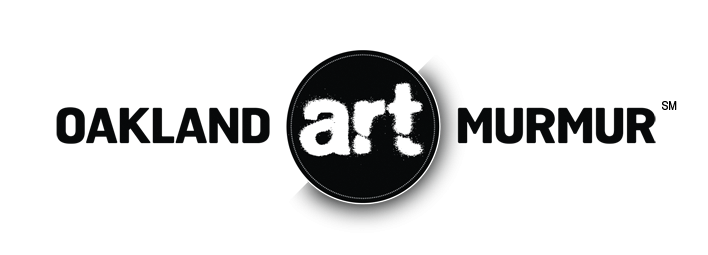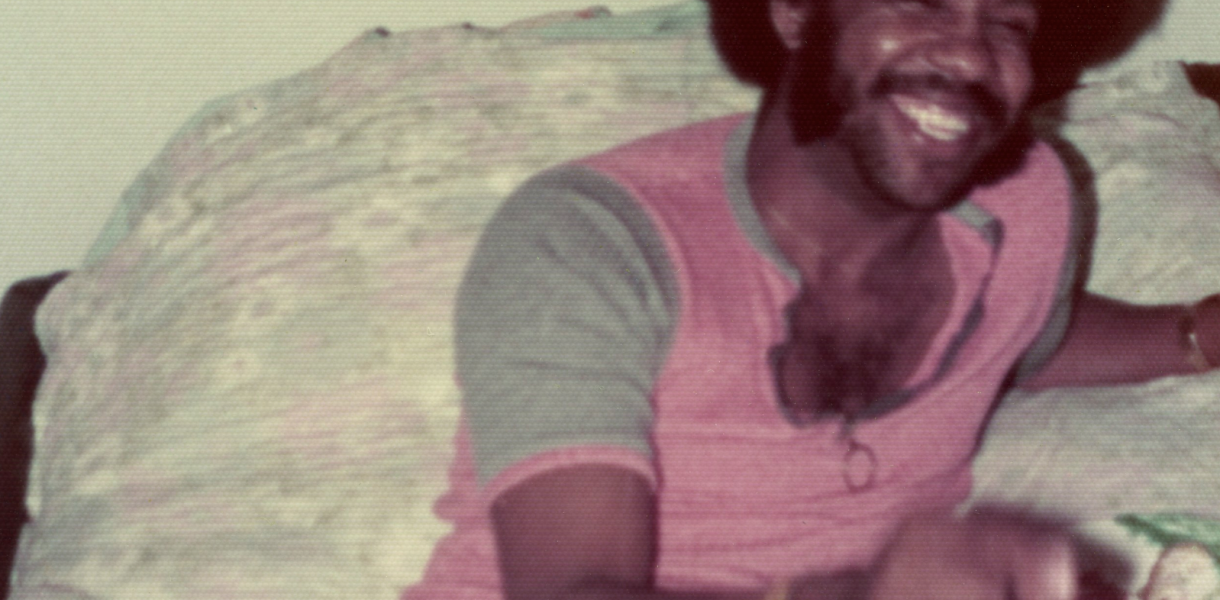By Malcolm Ryder
In Chinatown, the Oakland Photo Workshop door was open and already full of vintage 70’s and 80’s beats from its DJ’s LPs and 45s – pulling you off 8th Street into the bright welcome of the gallery’s staff and quickly to Raymond Cooper’s fashion splash behind the turntables.
I hadn’t initially anticipated this from the show title, expecting instead a bank of personal documentation and some time travel. But this commercial start threw a different spin and energy on what would follow. Additionally, the show’s layout unconventionally ran counter-clockwise around the walls, more from the back corner of the space to the front door.
Beginning in that corner, portraits and models take over. Eight or more feature someone you wish you’d loved at the time, or you wish had loved you. Frontal gazes, poses, or clothes project the time period’s triumph of having style define one’s deserved presence without the tension of politics.
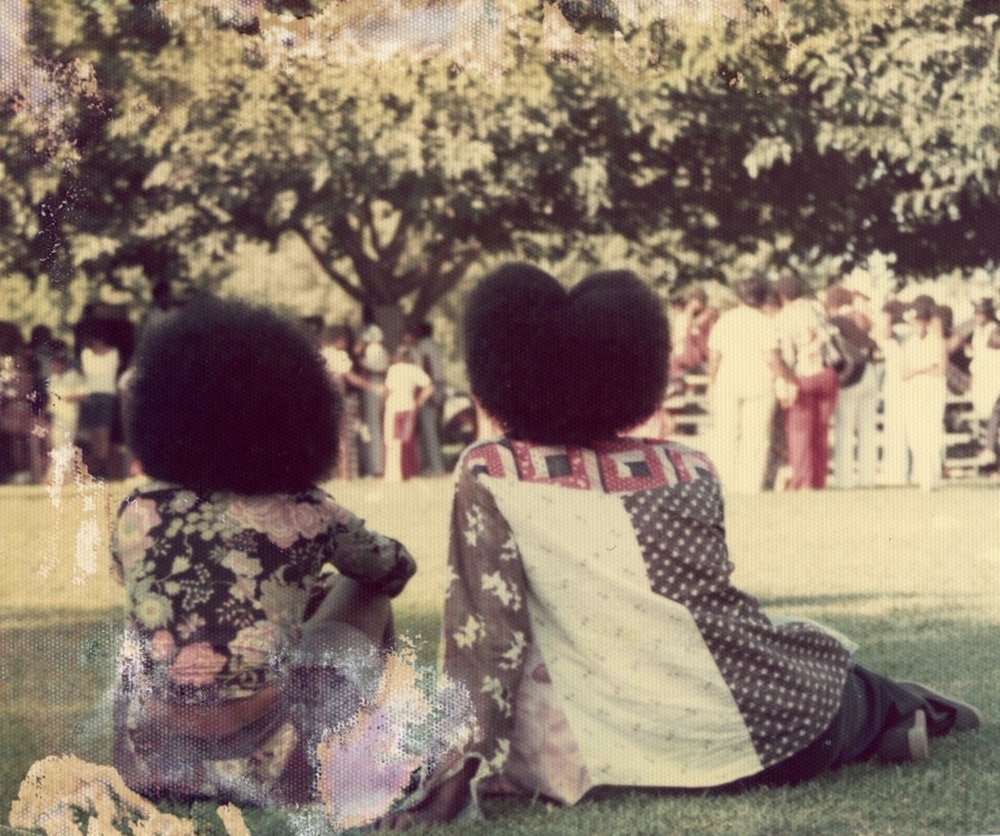
And having said that: Raymond’s women ruled. Right nearby, a gallery of signature hair looks makes the point, emphatically.
From there the works segue out of the studio and move into candids. Because they are so much more impromptu, they make us delve into their undeclared narratives. We have to rely on our memories and rehearsed imaginations to fill in the blanks as suggested by these snapshots. One thought comes up quickly: are these autobiographical, or just dutiful?
Having taken us outdoors, the images go explicitly public, with celebrations or other events that pull the period’s shared narratives more directly into the foreground of their locales. They invite us to compare what we think The Town was like then with what we think of it now.
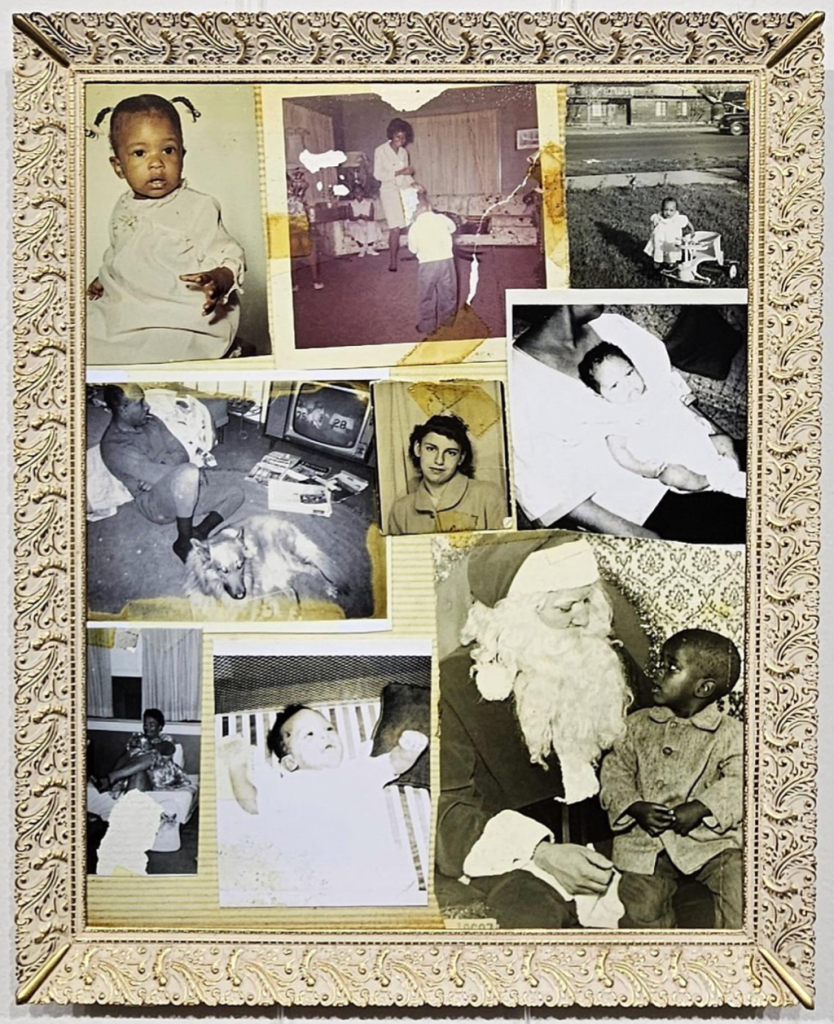
But the next wall takes a 180 degree turn. We get a vivid contrasting view, his view, of his private life. The entire photo collection on display in the show is composed of surviving items from a catastrophic fire that destroyed Cooper’s home but took no lives. Knowing this, we see a wall of photos from the Coopers’ archetypal family album, saturated with details of unconditional love.
These pictures are all still in the frames that were chosen by the Coopers at the time, punctuating a respect for legacy that albums also lock in, while gently accentuating the craftwork of handling the images with clear emotional intuition.
That same intuitive clarity explains the surprising jump from frank intimacy to the final set of images – from all the journaling of the preceding images to the inventiveness of his large-scale collage work. These reveal Cooper unleashed, a fantasist who enjoyed amplifying found images of things into reusable icons and characters , arranged to illustrate personal myths that blend pop, erotica, afro-futurism, and nostalgia.
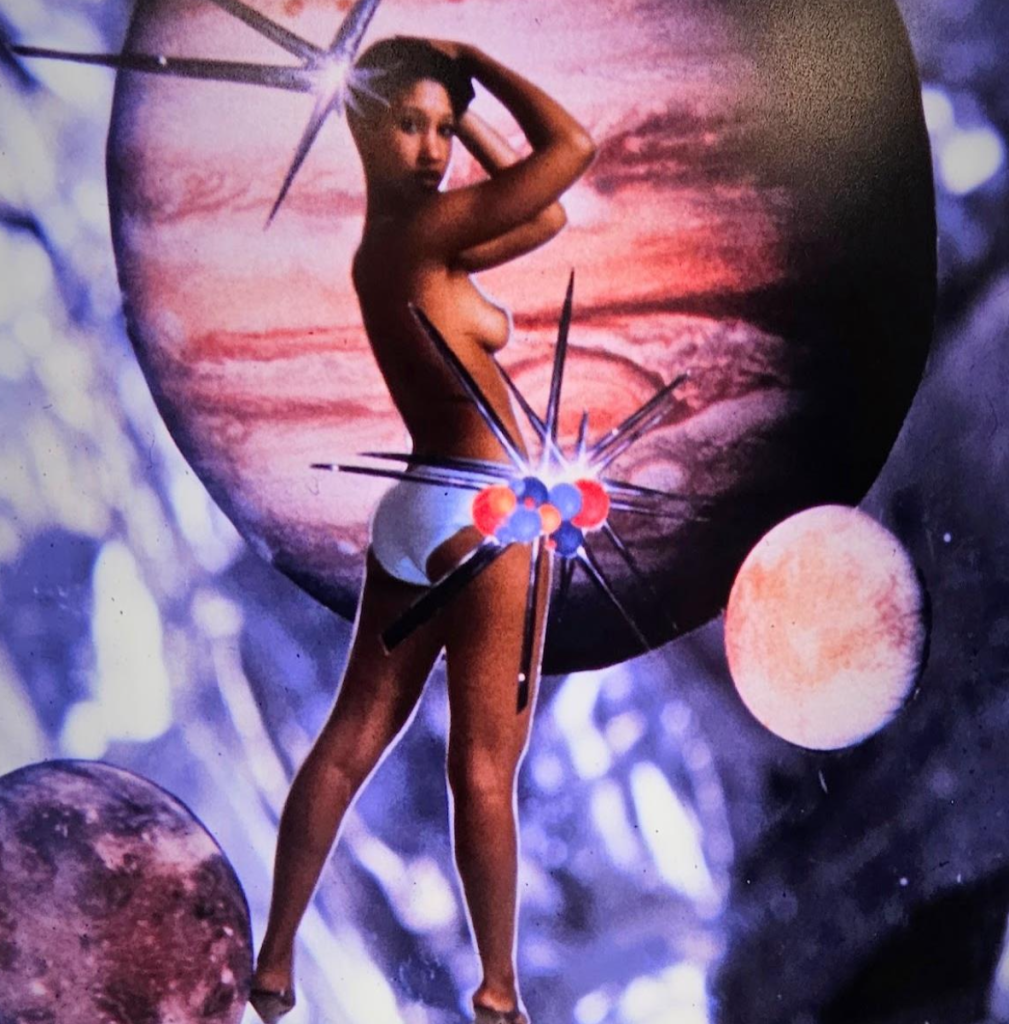
They made me go back to the beginning of the exhibit’s pictures and walk through them all again, reassessing what was their realist directness that documents his time, versus what he may have been taking away from what he saw.
In this show’s curation, we see at the start that fashion asked the photographer to explore – for impacts and effects that people relate to. Not only as a good fashion photographer, Cooper had always been absorbing things, visual things, that are emotionally evocative across numerous genres. The show tours the broad range of his attention and expression, showing us what he found both in and around himself. I left the show thinking more “Oakland’s Ray Cooper” than “Cooper’s Oakland” – a revival of the man in the midst of his work.
Raymond Cooper’s Oakland is on view at the Oakland Photo Workshop through April 21.
___________________________________________________________________
Malcolm Ryder, Oakland resident and artist, is a fine arts and commercial photographer and writer with 40 years experience in practice creating, teaching, and critiquing visual art as well as developing and managing arts organizations for visual artists. He is a graduate of Princeton University; a former programming developer and director at the NEA, NYSCA and NYFA; and former board member of arts non-profits in SF and Berkeley. His current art work, exhibiting in shows across the Bay Area since June 2022, is also published online at www.malcolmryder.com and at the home site of the multi-year collaborative art project Oaktown, at www.oaktown.pictures.
IMAGE CREDIT:
- Courtesy of Raymond Cooper, Aja Cooper and Oakland Photo Workshop
- Courtesy of Raymond Cooper, Aja Cooper and Oakland Photo Workshop
- Courtesy of Raymond Cooper, Aja Cooper and Oakland Photo Workshop (Image by Malcolm Ryder)
- Courtesy of Raymond Cooper, Aja Cooper and Oakland Photo Workshop (Image by Malcolm Ryder)
